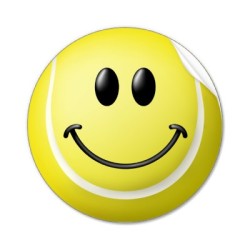
At
CAtennis.com, our primary goal is to provide juniors with practical tips and suggestions to develop their tennis game. One such avenue will be to obtain advice and insight from current and former players who have managed to achieve great success in our sport. Our first Q&A is with Robert Steckley of Toronto, Canada. I first met Robert when he was a 16 year old hot shot who was starting to make his way up the ATP ranks. Rob breathed confidence in everything involving tennis. He was fast, hit the ball clean, hard and steady (and listened to music that was way too loud).
Quick Bio: Canadian Davis Cup member; Main Draw Rogers Cup competitor; Top 260 ATP; Buffalo Future Tour Winner; Australia Future 15k Tour Winner; Thailand Future Tour Winner; Texas Future 15k Tour Winner; Ecuador Satellite Tour Winner; NCAA National Champion Division II; Canadian Men’s Open National Champion; 3 Time Junior Canadian National Champion; Junior US Open and Australian Open Quarter Finalist. Coached: Frank Dancevic; Aleksandria Wozniak; Sania Mirza (through 2011); Lucie Safarova and Edina Gallovits (in 2012). Website:
www.robsteckley.com
1. At what age did you start playing tennis?
I started late, picked up a raquet at 12 and literally started playing tourneys a half year into it.
2. When did you start taking tennis seriously?
I never truly enjoyed, until I realized that because I was so called "talented" it gave me extra attention from people thus giving me motivation to work a bit and within a year I made my first semi's and from that point on, that's when it sparked my interest. I gave all other sports up at 14 and committed myself to tennis solely.
3. How did your workouts change once you decided that you wanted to be a tennis player?
After I made the transition from an "all sport athlete" to strictly tennis, my coaches started to design tennis specific training regimens. Agility, lower body strength, core, and HUGE emphasis on court speed work and hand eye drills. I think the earlier you put the focus on those last two, the better the player will be able to adapt to explosive drills and tennis game later.
4. If you've had to guess, how many hours on the court do you think you've spent between picking up the racket and turning pro?
I'd have to say I've logged close to 20,000 hrs on court up to date. Let's multiply that by 500 balls min per hour. {Editor's note: that's at least 10,000 hours between time when he picked up racket and turned pro}
5. Who influenced you most as an athlete?
The biggest influence I had as an athlete would have to have been, Andre Agassi while growing up. He played a huge role in the player I became. I modeled my game brick for brick after him. My mother was the driving force behind me starting and really continuing, She had an obsession for me achieving goals and really burned that into me from a young age.
6. If you had the chance to go back in time and talk to yourself as a 15year old, what tennis-advice would you give yourself?
If I had a chance to go back in time, I'd definitely tell myself to believe more and just keep focused at the distractions that lie ahead.
7. What is your favorite drill/thing to practice?
My favourite drill as of right now would have to be side to side, to help burn off those d&^*ed extra calories from a lazy sun, but when I was playing, I LOVED down the line stuff, which helped me open up the court right away. That's something I stand by in my coaching now, that has helped all of my players on tour make huge leaps, fast. Not only to be able to hit it, but understanding when and why, and believing in it even when you miss a few.
8. What is the major difference between top college players (D-1) and the guys on the pro tour?
I'd say the top college players are very close in level to any of the top 50-100 player on tour. The major difference I find from seeing fresh college players coming onto tour, is the lack of experience in understanding how important it is to just KEEP THE BALL IN! When to go for certain shots, and being able to capitalize on those tiny opportunities they have created.
9. What made you choose Univerity of South Carolina as a school?
I chose USC because an ex coach of mine had played there. They had a top 5 team at the time, and the schooling was a bit more forgiving, rather when I came to visit with you in Cali. I would much rather go back in time and have chosen Pep[perdine]! {Editor's note: somehow I think that Rob may have been a tad bit too wild for Pepperdine}
10. Your highest singles ranking was 410 and you played Davis Cup for Canada. What were your top wins and what lessons would you take away from those matches?
I'd have to say my first Canadian national title U16 gave me the confidence to be undefeated for the rest of my canadian career nationally, which ultimately led to me to believing I was good enough to compete on tour. I think i might have beaten you in a game up to five once?! Highlight of my career for sure! {Editor's note: I think that it was more than one game and I recall sleeping on the floor for a few nights because of that}
Rob, we thank you for your time and insight and wish you best of luck in the upcoming season.
 Saturday, October 29, 2011 at 08:34PM
Saturday, October 29, 2011 at 08:34PM  CAtennis
CAtennis 


